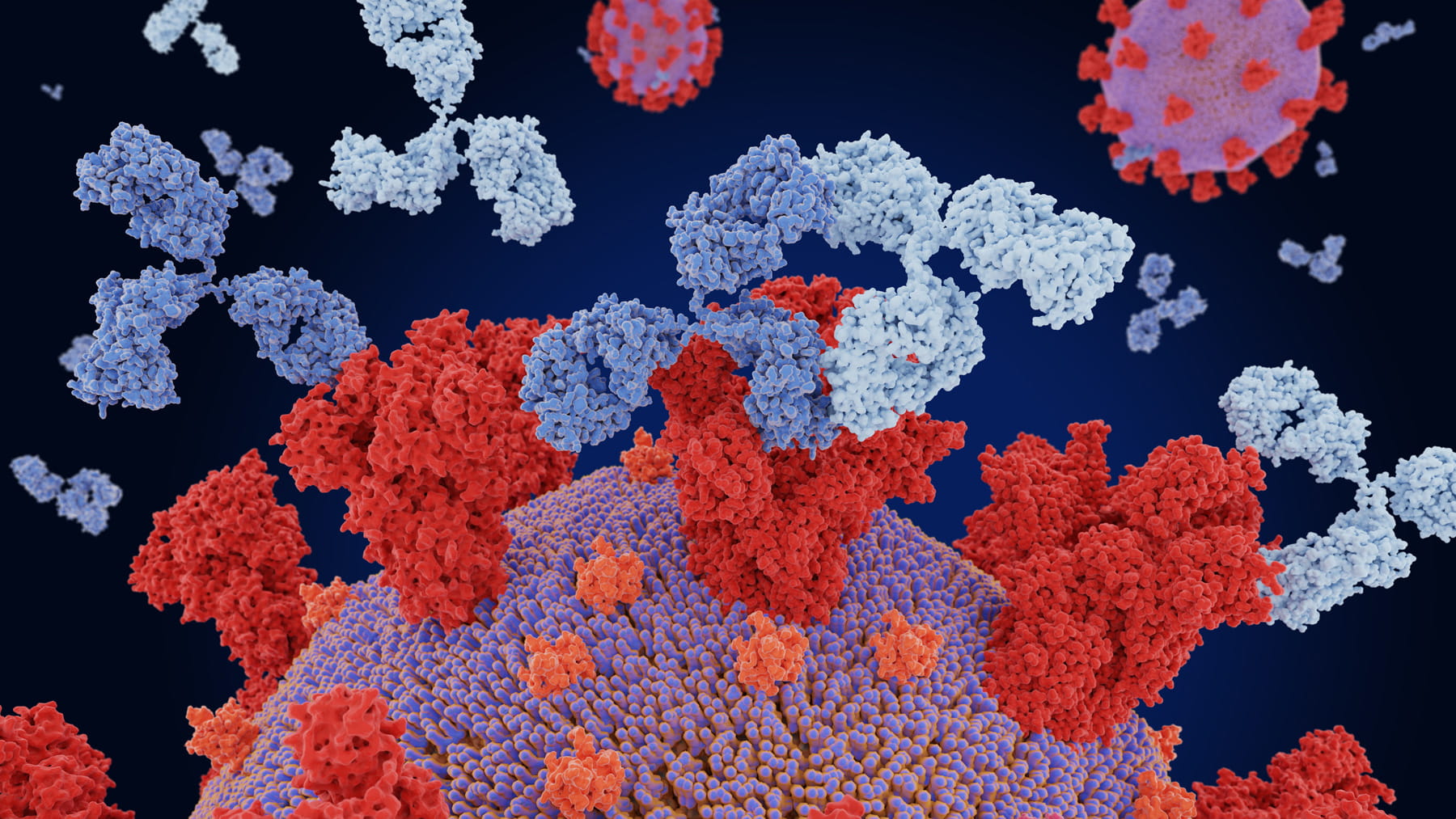What do antibodies do to protect against COVID-19?

Editor’s note: As what we know about COVID-19 evolves, so could the information in this story. Find our most recent COVID-19 blog posts here, and learn the latest in COVID-19 prevention at the Centers for Disease Control and Prevention.
There’s a lot of talk about COVID-19 antibodies — how we develop them, how long they last and what they can do to protect us from severe symptoms of COVID-19. We’re here to break down the answers to these questions on behalf of The Ohio State University Wexner Medical Center’s Center to STOP-COVID (Serological Testing to Improve Outcomes from COVID-19), an interdisciplinary research effort to study the long-term effects of COVID-19.
What are antibodies?
Antibodies are specialized proteins that are part of your immune system. They help protect against viruses, bacteria and other foreign substances.
In the case of COVID-19, after you’re infected with the SARS-CoV-2 virus, your immune system recognizes the virus as a foreign substance and forms antibodies against it. These antibodies provide some level of protection against future infections because they will recognize the virus as a danger and trigger your immune system to attack it.
How does the COVID-19 vaccine help produce antibodies?
COVID-19 vaccines work by exposing your immune system to an antigen that resembles a piece of the spike protein found on the surface of the virus that causes COVID-19. The antigen stimulates your immune cells to develop antibodies against the spike protein.
If you’re exposed to the virus that causes COVID-19 later on, your immune cells recognize the spike protein as a foreign invader and trigger your immune system to attack the virus. This typically results in either no infection at all or a “breakthrough” infection. Breakthrough infections are infections in patients who have been vaccinated, and they tend to result in much milder symptoms than you would have had without the vaccine.
Can everyone develop antibodies?
People with weakened immune systems have lower ability to develop a strong immune response after vaccination. That’s why people who fall into this group, as well as others with certain medical conditions, may be eligible to receive a third dose of the Pfizer or Moderna vaccines. You should consult with your primary care provider to decide what’s best for you.
Can I be tested to determine my antibody level? What level is considered ‘positive’?
There are several types of tests available that can determine if you have antibodies to SARS-CoV-2. You may hear this referred to as serology testing. A positive antibody test may indicate that you have had a COVID-19 infection or that you have been vaccinated against COVID-19.
Antibody testing isn’t recommended to diagnose COVID-19, monitor response to vaccination, or to determine the need for vaccination in an unvaccinated person.
Antibody testing is used to determine if a person has had an infection with SARS-CoV-2 in the past. It might be recommended for public health use or if someone without a documented history of COVID-19 is showing possible complications from COVID-19, to confirm whether they did actually become infected at some point.
Because of the ways different types of antibody tests are run, we don’t look at a specific number or level to determine if a person might have an adequate level of protection. But we can determine if a person has antibodies or not, and depending on the type of test, we may be able to determine if the antibody level is low or high.
More info:
With COVID-19, we think of antibody levels in a qualitative sense, rather than a quantitative sense: A higher antibody level will generally give you more protection than a lower level, but there is no specific level of antibodies that means you’re completely immune to COVID-19. Your level of protection from COVID-19 may depend on other factors — for example, if you’re exposed to a particular SARS-CoV-2 variant.
An antibody test measures only one part of our complex immune response to COVID-19.
Can I be tested to tell which COVID-19 variant(s) I’ve developed antibodies against?
No, there’s no commercial test available at this time that can determine which variant(s) you have antibodies to. However, it’s very likely that antibodies produced from exposure to one COVID-19 variant will help protect you against other variants.
Will my antibodies pass to my baby in breastmilk and offer my baby some protection?
A mother can pass COVID-19 antibodies to her baby through her breastmilk. This may give the baby some level of protection against COVID-19 infection. Visit these sites for more information from Ohio State experts on COVID-19 and pregnancy and breastfeeding.
What is monoclonal antibody treatment for COVID-19?
Monoclonal antibody (mAb) treatment may be an option for some people with COVID-19, especially early in the course of the disease. Monoclonal antibodies are antibodies that are developed in a lab and marketed by pharmaceutical companies to mimic a person’s natural antibodies. Monoclonal antibody treatments can bind to the virus and block it from infecting cells.
If you have COVID-19, talk with your health care team to see if you quality to receive monoclonal antibody treatment.
More on monoclonal antibodies, from HHS.gov
Laura Rush is the director of the Learning Health System Core in The Ohio State University Center for the Advancement of Team Science, Analytics, and Systems Thinking (CATALYST). Courtney Hebert is an infectious disease physician at The Ohio State University Wexner Medical Center and an assistant professor of biomedical informatics in The Ohio State University College of Medicine.
The Center to STOP-COVID is funded by a five-year, $10 million grant from the National Cancer Institute in the National Institutes of Health. Visit the center’s website to learn more about the team and their latest research discoveries.




